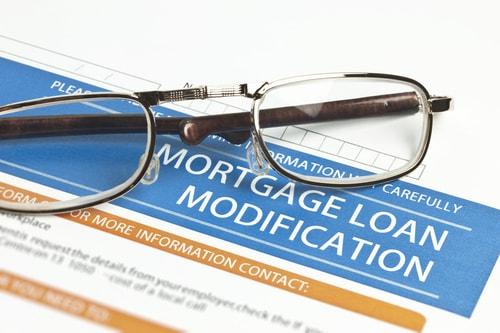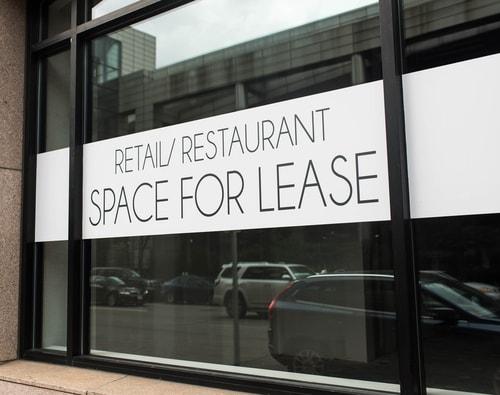1512 Artaius Parkway, Suite 300,
Libertyville, IL 60048
Call for a FREE Phone Consultation
847-549-0000
Video Consultations Also Available
 Spanish
Spanish Cantonese
CantoneseServing Clients Across 7 Illinois Locations
Recent Blog Posts
What Happens at a Residential Real Estate Closing?
 Buying a new home is an exciting opportunity, but the process can be time-consuming and stressful at times. By the time you have found the right home, secured the necessary financing, and reached an agreement regarding the terms of the deal, you will certainly be ready to move in and relax for a while. Before you can do, however, there is one final step: the closing. If you have never bought a new home before, you should be aware of what goes on at closing and what you will be expected to do.
Buying a new home is an exciting opportunity, but the process can be time-consuming and stressful at times. By the time you have found the right home, secured the necessary financing, and reached an agreement regarding the terms of the deal, you will certainly be ready to move in and relax for a while. Before you can do, however, there is one final step: the closing. If you have never bought a new home before, you should be aware of what goes on at closing and what you will be expected to do.
Your Role at Closing
Before you can get the keys to your new home, you will generally be required to attend and participate in a mortgage closing. Most often, a closing is a scheduled appointment at the office of an attorney, the title company, or your mortgage lender. You should bring any documents that you received or signed in the weeks leading up to closing, along with two forms of identification. You will also need an acceptable form of payment—usually a cashier’s check—if your required payment has not already been wired in advance.
Could Applying for a Loan Modification Help Me Avoid Foreclosure?
 Are you behind on your mortgage? If so, are you getting to the point where you are worried about the possibility of foreclosure? When you are behind on your mortgage payments, things can spiral out of your control very quickly. It is important to realize, however, that you may have options that could allow you to keep your home and to get back in good standing with your lender. One of these options is a loan modification, and a skilled Lake County lawyer can help you apply.
Are you behind on your mortgage? If so, are you getting to the point where you are worried about the possibility of foreclosure? When you are behind on your mortgage payments, things can spiral out of your control very quickly. It is important to realize, however, that you may have options that could allow you to keep your home and to get back in good standing with your lender. One of these options is a loan modification, and a skilled Lake County lawyer can help you apply.
Your Loan Will Not Be Modified If You Do Not Apply
A loan modification, put simply, is an amendment to the terms of your loan so that you can get caught up and back on track with your mortgage. There are different types of modifications available, such as an extension of the loan’s term to reduce monthly payments, interest rate adjustment, and the capitalization of your missed payments. While each type of loan modification is different, they have one thing in common: you cannot get a modification unless you apply for one.
What You Should Know About Addressing Construction Defects Through Litigation
 Few things are more frustrating than finding that your home was built with some type of defect. These defects may not be discovered for many years down—long after explicit warranties have expired. In most cases, even your homeowners insurance will not help you recoup the costs to fix the construction defect.
Few things are more frustrating than finding that your home was built with some type of defect. These defects may not be discovered for many years down—long after explicit warranties have expired. In most cases, even your homeowners insurance will not help you recoup the costs to fix the construction defect.
Your Insurance Might Not Cover You for Construction Defects
The typical homeowners insurance policy is intended to protect homeowners from specifics types of losses. Such a policy will generally cover the structure of the home, as well as other buildings on the owner’s property, such as a detached garage or tool shed. The policy will also usually cover replacement costs for personal property that is stolen or destroyed by a covered risk, such as a fire. Most homeowners policies also include a level of liability protection in the event that another person is injured while visiting the property.
When a Commercial Tenant Stops Paying Rent
 If you are the owner of property that you lease to commercial tenants, you will almost certainly have to deal with lessees who fail to pay their rent on time. While you might offer grace periods or other ways to help your tenants, eventually, one or more of your tenants will probably reach a point where you start to wonder if they have stopped paying altogether. As a commercial landlord, there are a few things to consider and certain steps that you must take before you can begin the process of evicting a commercial tenant.
If you are the owner of property that you lease to commercial tenants, you will almost certainly have to deal with lessees who fail to pay their rent on time. While you might offer grace periods or other ways to help your tenants, eventually, one or more of your tenants will probably reach a point where you start to wonder if they have stopped paying altogether. As a commercial landlord, there are a few things to consider and certain steps that you must take before you can begin the process of evicting a commercial tenant.
Reach Out and Talk
As with any human interaction, commercial leasing issues can often be resolved through open and honest communication. Maintaining open communication can catch small issues before they grow into major problems. If your tenant’s payment for the month is late, consider reaching out to find out what is happening. You could make a quick phone call, stop by the business, or even send a friendly text message asking if everything is ok, especially if your tenant has never had trouble paying on time before.
What Are My Rights as a Renter When My Landlord Is Facing Foreclosure?
 If you are a homeowner, there is a good chance that you bought your home with a mortgage loan and that you make payments on your mortgage every month. If you are a renter, you make rental payments each month, but instead of making payments to a bank or lending institution, your rent goes directly to your landlord. Presumably, your landlord is using your payments to make payments of his or her own on the mortgage for the property in which you live.
If you are a homeowner, there is a good chance that you bought your home with a mortgage loan and that you make payments on your mortgage every month. If you are a renter, you make rental payments each month, but instead of making payments to a bank or lending institution, your rent goes directly to your landlord. Presumably, your landlord is using your payments to make payments of his or her own on the mortgage for the property in which you live.
You are most likely aware that failing to make your mortgage payments on a home that you own could result in foreclosure, with the bank seizing your home. Similarly, you know that failing to make your rental payments could result in eviction, with the landlord taking possession of his or her property. So, what happens when you make your rental payments each month but your landlord does not make his or her mortgage payments?
Should I Purchase a Home Through a For Sale By Owner Transaction?
 When a person is looking to sell his or her home, he or she will usually enlist the help of a real estate broker to manage the deal. In some cases, however, a homeowner will forgo a broker and try to sell the home in a “for sale by owner” transaction, or a FSBO—pronounced “fizz-bo”—deal. If you are considering buying a FSBO property, you may be able to get great value for your money, but there are some risks that you should take into account.
When a person is looking to sell his or her home, he or she will usually enlist the help of a real estate broker to manage the deal. In some cases, however, a homeowner will forgo a broker and try to sell the home in a “for sale by owner” transaction, or a FSBO—pronounced “fizz-bo”—deal. If you are considering buying a FSBO property, you may be able to get great value for your money, but there are some risks that you should take into account.
Sharing the Workload
Real estate brokers are trained—and hired—to do much of the legwork involved in residential real estate transaction. In a FSBO situation, however, the owner will almost certainly not have the same level of experience or knowledge of the real estate world. This means that he or she might not provide you with all of the relevant information regarding the deal. While the oversight might be unintentional, you should be aware of it and be ready to take on some additional responsibilities in exchange for the lower price that is typically part of a FBSO purchase.
Report Finds Foreclosures Dropping in Chicago and Nationwide
 The real estate market is a complex combination of factors. However, it generally reflects the overall economic health of the country. When the economy is healthy, the real estate market does well, but when economic growth slows, there is usually a corresponding slowdown in home sales and new mortgages. In such situations, foreclosures generally increase as well.
The real estate market is a complex combination of factors. However, it generally reflects the overall economic health of the country. When the economy is healthy, the real estate market does well, but when economic growth slows, there is usually a corresponding slowdown in home sales and new mortgages. In such situations, foreclosures generally increase as well.
With all of this mind, a recent report indicates that the economy is likely to be doing well, as the number of properties in foreclosure around the country has dropped fairly substantially compared to the same time last year. In the greater Chicago area, defaults, foreclosure filings, and lender repossessions have also decreased.
A Look at the Numbers
Last month, ATTOM Data Solutions released the Midyear 2019 U.S. Foreclosure Market Report that tracked foreclosure activity throughout the United States for the first six months of 2019. The report found that just under 300,000 properties are in some stage of the foreclosure process, a drop of 18 percent compared to the mid-year report from 2019. This figure represents the lowest level of foreclosure activity in the last 12 years. The 2019 number is a staggering 82 percent decrease from the first half of 2010 in which 1.65 million properties had foreclosure filings.
What Is a Strategic Default on a Residential Mortgage?
 If you financed the purchase of your home with a mortgage loan, you probably signed what seemed to be mountains of paperwork. Buried in each document and hidden in confusing language were the terms and conditions of your loan and what would happen if you failed to make the required payments. Off the top of your head, you might not be able to recall all of the specific details, but you probably realize that if you do not keep up with your mortgage, the loan will go into default. If you stay in default for long enough, the lender will initiate foreclosure proceedings and eventually take your home.
If you financed the purchase of your home with a mortgage loan, you probably signed what seemed to be mountains of paperwork. Buried in each document and hidden in confusing language were the terms and conditions of your loan and what would happen if you failed to make the required payments. Off the top of your head, you might not be able to recall all of the specific details, but you probably realize that if you do not keep up with your mortgage, the loan will go into default. If you stay in default for long enough, the lender will initiate foreclosure proceedings and eventually take your home.
With this in mind, it would seem that defaulting on your mortgage is something that should be avoided at all costs. In some situations, however, a strategic default could help you find a way out of a difficult situation.
How Will Foreclosure Affect My Credit Score?
 Regardless of who you are, how much money you have, and the types of property you own, the word “foreclosure” is likely to generate feelings of fear, anxiety, and stress. If you are struggling to make the mortgage payments on your family home, the idea of foreclosure is likely to be especially frightening.
Regardless of who you are, how much money you have, and the types of property you own, the word “foreclosure” is likely to generate feelings of fear, anxiety, and stress. If you are struggling to make the mortgage payments on your family home, the idea of foreclosure is likely to be especially frightening.
Most people understand the basic steps of foreclosure, even if they do not know all of the details. In short, they know that the lender will eventually force a homeowner who is in default to leave the property. Then, the lender will reclaim possession of the home and attempt to sell it in an effort to recoup some of the losses incurred. What many people do not realize, however, is the effect that a foreclosure will have on the borrower’s credit score.
Your Credit Score
Your credit score is a statistical rating that lenders and other institutions use to evaluate how well you manage debt. Credit scores can range from 300 to 850, and higher scores indicate stronger creditworthiness. A credit score above 740 is considered to be “Very Good,” and above 800 is considered “Excellent.” Between 670 and 739 is “Good,” while 580 to 669 is “Fair.” Anything below 579 is considered “Poor.”
What You Should Know About Buying an REO Property
 If you are looking to buy a home, you might have friends and family members suggesting that you should look into buying a foreclosure property. A foreclosure property is a piece of real estate that has been put up for sale by the bank after the original owner of the property failed to keep up with the mortgage payments.
If you are looking to buy a home, you might have friends and family members suggesting that you should look into buying a foreclosure property. A foreclosure property is a piece of real estate that has been put up for sale by the bank after the original owner of the property failed to keep up with the mortgage payments.
Because a foreclosure sale is typically an auction, you could potentially get a great deal. But, what happens to homes that are foreclosed on and put up for sale at an auction but do not get sold? These properties revert back to the lender and become what are known as real estate-owned, or REO, properties.
Failed Foreclosure Auctions
When a lender seizes a home in foreclosure and puts it up for sale initially, the sale is usually conducted as a public auction. This means that the home will go to the highest bidder. In many cases, however, bidders do not get the chance to see or inspect the property before the auction. Additionally, the high bidder will normally be expected to pay for the property on the spot with cash or a certified check. Financing is available in certain situations, but most auctions sales are completed without it.
 Stop Foreclosure
Stop Foreclosure




















